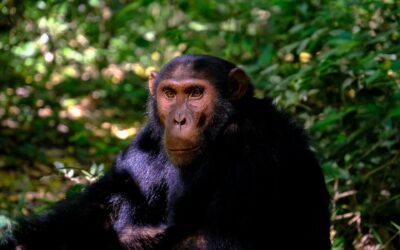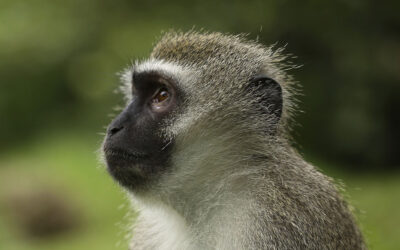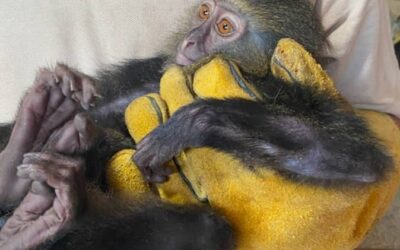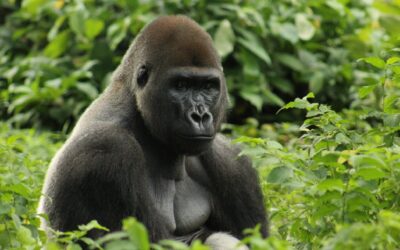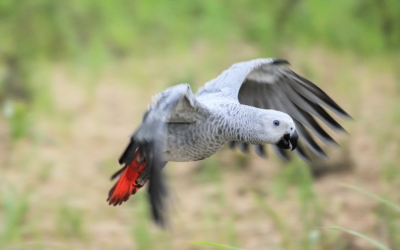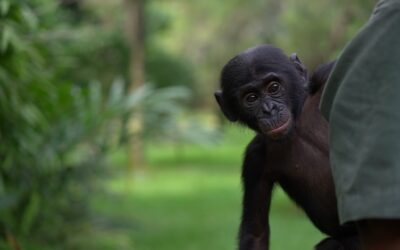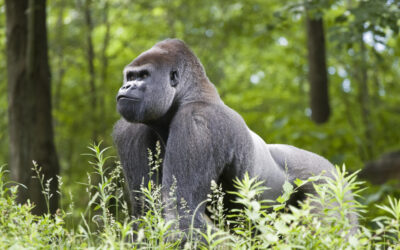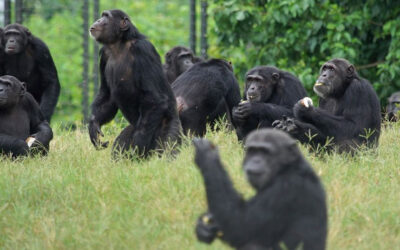Are Conventional Conservation Approaches Holding us Back?
The Ethics of Give and Take
Working with corporations to forge new paths to conservation
by Natasha Tworoski
When it comes to complex issues such as protecting our remaining wildlife and wild places, solutions are rarely straightforward. Industrial development has a way of wiping out habitats and despite all the endangered species we have on record, far more have been wiped out without us even realizing they ever existed. While PASA’s main objective is to rescue and rehabilitate Africa’s primates and protect them from extinction, we additionally play a large role in conservation education and working towards protecting the wild places for all African species. This task is not taken lightly and it is important that great thought is put into conservation efforts before actions are taken. However, this does not mean that the “safest” approach is always the right choice
The Bornean Orangutan Survival Foundation has recently taken a bold step that is making some conservationists squirm. The largest orangutan sanctuary in the world, BOSF is home to 750 orangutans and finding enough space to return these solitary apes to the wild is a seemingly impossible challenge. After years of attempting to raise enough funds and to work through the bureaucratic challenges of securing space on a nearby island to release their rehabilitated orangutans, a solution presented itself. PT Sawit Sumbermas Sarana (PTSSS) offered to purchase part of the island and donate the land to the sanctuary to use for orangutan rehabilitation. This means it will be sort of a halfway home for the orangs, where they will be learning to forage and care for themselves, but still have BOSF staff keeping an eye out for them if they aren’t quite ready. The issue is that PTSSS is one of the main palm oil production companies in Indonesia.
Palm oil is a type of miracle vegetable oil with countless uses in food and cosmetic production. It also is an inexpensive oil to farm and global demand continues to grow because of this. Palm oil production is also the leading reason why both species of orangutans are in trouble. Last year, the Bornean orangutan joined the Sumatran orangutan on the critically endangered species list. Read more about the history of palm oil and how it is now affecting African apes here.
While PTSSS stepping up to help orangutan conservation could be seen as an olive branch in what has been a decades-long battle between conservationists and palm oil producers, many are concerned the action will give the palm oil company a positive reputation while continuing to do significant environmental damage, due to its record of causing large-scale deforestation. Unless PTSSS makes a commitment to discontinuing all deforestation, some conservation groups aren’t willing to acknowledge the gesture as genuine. The arrangement has received additional criticism since the orangutans brought here will not be truly returned to secluded wild places and thus will have to be transferred yet again when they are officially released. However, with so many animals in their care, BOSF is welcoming the gesture and optimistic about finding ways to work together in the future. 150 orangutans will be transferred to this new piece of land as they begin the transition back to the wild.
This is an excellent example of a more global debate that has been occurring over the past five years, simplistically described as traditional conservation versus new conservation. “Traditional” conservationists are viewed as being strictly for focusing on wildlife preservation, with the goal of managing untouched reserves. “New” conservationists are more open to maintaining ecosystems that benefit both wildlife and humans, working with corporations to find a win-win situation. The fear the “traditional” conservationists have is that with the small amount of support and funding given to wildlife preservation, worrying about human welfare or cooperating with corporations will only further draw away attention from endangered wildlife. “New” conservationists would counter that having any support at all will improve most current situations.
One of the most famous conservationists to favor cooperative efforts when it comes to protecting wildlife is Dr. Jane Goodall, whose dedication for chimpanzees is matched by her compassion for humans. One example is the Jane Goodall Institute’s Gombe Masito-Ugalla program (GMU), which has created a co-op for coffee plantation farmers that will provide them with training for sustainable farming and provide valuable marketing opportunities to help guarantee a stable income for farmers. As with palm oil plantations, growing and harvesting coffee beans can result in significant deforestation, which encroaches on what habitat is left for wildlife such as chimpanzees. 7,500 are currently benefiting from the assistance provided by this co-op, while simultaneously producing in ways that protect not only chimpanzees, but all wildlife residing in Tanzania’s forests.
A group of researchers from the United Nations Environment World Conservation Monitoring Centre is now conducting a global survey to determine where the masses’ viewpoints lie when it comes to conservation approaches. Instead of the results being displayed as either new or traditional conservation in an “us versus them” manner, results are shown on a plot graph with two axes in order to judge a range of how people-centered versus nature-centered survey takers are, as well as how pro or anti-market. This is a significant step in the right direction, as it acknowledges this issue as a complex spectrum and additionally gives a voice to all. Check it out here.
The challenges of wildlife conservation in Africa and Southeast Asia can feel overwhelming. However, when an opportunity like the one BOSF utilized presents itself, it is important to take a step back and consider the big picture. Sometimes taking a middle ground will provide wildlife with the best fighting chance. PASA’s member wildlife centers work hard to spread compassion through education and to additionally find opportunities to give back and strengthen relationships with local communities. At Lola ya Bonobo in the Democratic Republic of Congo, a program was started where local farmers were provided with a variety of seeds and training on how to grow each crop. The payback is the farmers agree to sell all of their produce to back to Lola ya Bonobo at a fair price, which will then be used to feed the bonobos. In this way, the sanctuary does not have to worry about being charged significantly high prices for food they must have and farmers in the program are guaranteed to sell all of their crop. It is a phenomenal example of a win-win situation.
To donate to PASA to help us continue to create programs like this one, please visit us here.
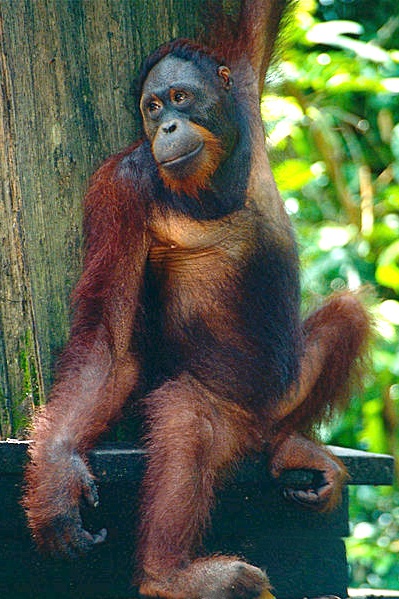
Deforestation have now pushed the Bornean orangutan as well as the Sumatran orangutan to critically endangered status.
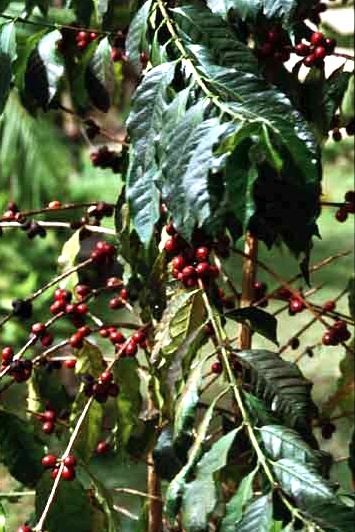
Like the palm oil crisis destroying habitat across the globe, coffee plantations in Tanzania can have devastating effects on the environment.
Next Posts
5 Summer Activities to Foster Conservation Education with Young Children
Here are 5 fun and educational activities that promote conservation awareness and environmental responsibility.
PASA and the QATO Foundation Partner to Protect Chimpanzees in DRC
PASA and its member J.A.C.K. Sanctuary partner with the QATO Foundation to create a bold new island sanctuary for up to 120 rescued chimpanzees in the DRC.
Trophy Hunting Myths Debunked
NGOs tackle misinformation about trophy hunting spread by the hunting lobby.
Largest Seizure of Monkeys in Africa Welcomed to J.A.C.K. Sanctuary in the Democratic Republic of Congo
Trafficking of African primates from Africa to Asia was thwarted with confiscated animals repatriated and sent to an accredited PASA member sanctuary.
5 Ways to Help Save Gorillas
Anyone can have an impact on gorilla conservation through simple actions.
Celebrate World Parrot Day with PASA!
This World Parrot Day, we are celebrating four of our amazing member sanctuaries that offer a second chance to rescued parrots!
What is an Endangered Species?
This article explains what it means to be “endangered” and explores how human activities can threaten species. It also highlights how Pan African Sanctuary Alliance (PASA) member centers rescue, rehabilitate, and conserve endangered primates and their habitats.
Celebrate 23 Years of PASA in 2023
PASA turns 23! It’s 2023 and we’re asking you to help us celebrate our 23 member sanctuaries and our 23 years of protecting primates. To mark this day, we are launching our Primates Forever Campaign to ensure magnificent great apes and monkeys remain wild and protected.
Viruses in Sanctuary Chimpanzees Across Africa
New research finds that sanctuary chimpanzees are infected with viruses previously found in wild chimpanzees. Additionally, it suggests that, like in the wild, sanctuaries experience reverse zoonotic respiratory virus transmission.
Women in Conservation: Two Wildlife Heroes in West Africa
This International Women’s Day, celebrate the dedication and achievements of two women working to protect wildlife and inspire the next generation in West Africa.


